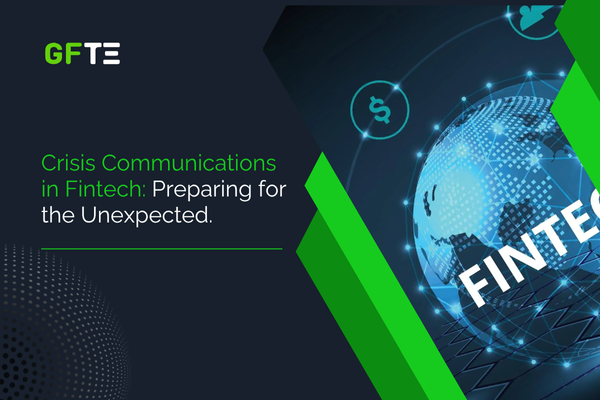Crisis Communications in Fintech: Preparing for the Unexpected.

In an industry built on trust and technology, no fintech company is immune to crisis. Whether it is a security breach, compliance issue, or market disruption, the stakes are exceptionally high when money and data are involved. The difference between lasting damage and a managed recovery often lies in the strength of a company’s communication strategy. Effective crisis PR is not only about responding to emergencies but also about preparing for them before they occur.
Fintech firms operate in a high-visibility environment where perception drives investor confidence and consumer trust. A single misstep can impact valuation, partnerships, and long-term reputation. A proactive communication framework transforms crisis management from damage control into an opportunity for leadership.
Building a Foundation Before a Crisis
The best time to prepare for a crisis is when there isn’t one. A well-structured fintech PR strategy should include clear escalation procedures, trained spokespeople, and consistent messaging guidelines. These elements ensure that when pressure rises, responses are coordinated and credible.
Preparation also involves scenario planning. Fintech organizations should anticipate potential threats, from data leaks to product failures, and define communication approaches for each. Establishing a tone that balances transparency with authority helps maintain confidence during moments of uncertainty. When leaders communicate early, honestly, and with clarity, they preserve trust even in difficult situations.
The Role of Reputation Management in Crisis
In fintech, reputation is currency. Protecting it requires continuous attention, even outside moments of crisis. Strategic reputation management involves monitoring public sentiment, identifying risks early, and addressing misinformation before it spreads.
During a crisis, the digital ecosystem can amplify both facts and falsehoods within minutes. Integrating digital PR into crisis communication enables fintech brands to stay visible and in control of their narrative. This includes timely press engagement, online statements, and coordinated responses across media channels. By maintaining consistency between online messaging and executive communication, fintech companies reinforce authority and reduce confusion.
Communicating with Investors and Stakeholders
Fintech brands are accountable not just to customers but also to investors and regulators. This complex audience demands precision and clarity. Fintech marketing plays a key role in ensuring that brand positioning and investor relations remain stable during turbulent times.
Crisis communication for investors should emphasize accountability and long-term vision. Rather than focusing solely on the immediate problem, the message should highlight corrective actions, governance improvements, and continued innovation. When investors understand that a company has both control and commitment, confidence can recover more quickly.
Turning Response into Recovery
Once the immediate threat is contained, communication should transition from defense to restoration. Recovery begins with transparency, followed by sustained engagement. This phase allows fintech companies to rebuild credibility by demonstrating lessons learned and implementing visible improvements.
A forward-looking PR strategy connects recovery efforts with broader brand values. It frames challenges as opportunities to refine operations and reinforce trust. This approach helps move the conversation from crisis to progress, showing that resilience is part of the company’s identity.
Integrating PR and Risk Strategy
Strong communication does not exist in isolation. It should be integrated into broader business risk management. Cross-departmental alignment between leadership, legal, marketing, and public relations ensures consistent messaging and efficient execution. This coordination helps prevent contradictions that can erode credibility during critical moments.
A connected PR and risk framework also strengthens long-term positioning. When communication teams participate in strategic planning, they can anticipate reputational risks associated with new products, partnerships, or regulations. This foresight transforms PR from a reactive function into a proactive business asset.
Preparedness as a Competitive Advantage
The fintech sector rewards those who anticipate change and respond with agility. The same principle applies to communication. Companies that invest in crisis preparedness demonstrate professionalism and foresight, qualities that appeal to both consumers and investors.
By integrating crisis PR, reputation management, and digital communication strategies, fintech brands can protect their credibility when challenges arise. Preparedness not only minimizes damage but also enhances long-term resilience.
In fintech, trust is earned over time and tested in moments of crisis. Those who plan for the unexpected communicate strength through clarity and consistency. The result is not just survival but sustained leadership in a sector where reputation is everything.
| About: Matthew Caiola | About 5WPR |
| Matt is the CEO of 5W and the leader of its corporate, technology and digital divisions. Under Matt’s leadership, 5WPR has been named one of Inc. Magazine’s Best Workplaces, a Top 50 Global PR Agency by PRovoke Media, a top three NYC PR agency by O’Dwyers, and has been awarded multiple American Business Awards, including a Stevie Award for PR Agency of the Year. | 5WPR is a full-service PR agency known for cutting-edge programs that engage with businesses, issues, and ideas. Founded in 2003, 5W has been named a top US and NYC PR Agency by leading industry publication O’Dwyer’s, as well as awarded Agency of the Year in the 2024 American Business Awards®, and continuously brings leading businesses a resourceful, bold, and results-driven approach to communication. The agency has more than 250 professionals serving clients in B2C (Beauty & Fashion, Consumer Brands, Entertainment, Food & Beverage, Health & Wellness, Travel & Hospitality, Technology, Nonprofit), B2B (Corporate Communications and Reputation Management), Public Affairs, Crisis Communications and Digital Marketing (Social Media, Influencer, Paid Media, SEO). In addition to its business accolades, 5W was named to the 2024 Digiday WorkLife Employer of the Year list. For more information and to join our team visit 5W Careers. |



